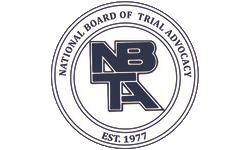How to Recognize Surgical Malpractice
Surgical errors can be medical malpractice if a surgeon’s negligent conduct falls below the accepted standard of care as compared to reasonably competent surgeons practicing that area of surgery under similar circumstances, and a patient is harmed as a result.
Surgical errors are mistakes that are preventable. Although some surgical errors are the direct result of a physician’s incompetence, most result from poor preoperative planning or inadequate procedures or work processes.
According to Attorneys.com, thousands of patients suffer from surgical errors every year in U.S. hospitals. A 1999 Institute of Medicine study estimated that medical errors, including those from surgery, affect 44,000 to 98,000 patients each year. Surgeries made necessary as a result of auto accidents, heart problems, joint replacement, organ transplants, and other circumstances all have their share of surgical complications that can lead to errors amounting to malpractice.
Examples of Surgical Errors
Surgical errors may include:
- Wrong-site surgery
- Incorrect incisions
- Leaving equipment inside a patient
- Operating on the wrong patient
- Nerve damage
- Anesthesiology errors
Although every surgical procedure involves some degree of risk or complication, such as heart failure or stroke, and patients are required to sign implied consent documents advising them of known risks, errors such as these go beyond accepted risks.
Causes of Surgical Errors
Physicians and their staff generally follow standard protocols before, during, and after surgical procedures. Regardless of these protocols, errors can still occur as a result of contributing factors such as:
Inadequate preoperative planning-Medical staff must have a patient’s complete medical history, including reactions to medications, and must evaluate the risks of a particular surgery on the patient.
Miscommunication-A nurse or other staff may misidentify a patient or incorrectly mark the wrong site for surgery. A surgeon may be misinformed about other material issues affecting the surgery, or may misread a drug’s dosage or the patient’s reaction to a drug. All surgical equipment must be accounted for after a procedure, but surgical sponges or other equipment sometimes do end up in a patient’s body cavity after a surgery is concluded.
Fatigue or under the influence-Surgeons and staff work long hours and have been known to be intoxicated or to have taken drugs to stay alert. Consequently, their judgment can be impaired.
Neglect-The failure to properly sterilize instruments or the use of defective surgical instruments can lead to infection, septic shock, and other life-threatening conditions.
Incompetence-Surgeons must endure years of rigorous study and training, but not all possess the skills and competence to perform surgical procedures commensurate with the standard of reasonably competent surgeons.
If you or your family member has suffered an injury due to medical malpractice please contact us todayat Golden Law Office at 859-469-5000 or email info@goldenlawoffice.com
This is an advertisement.











